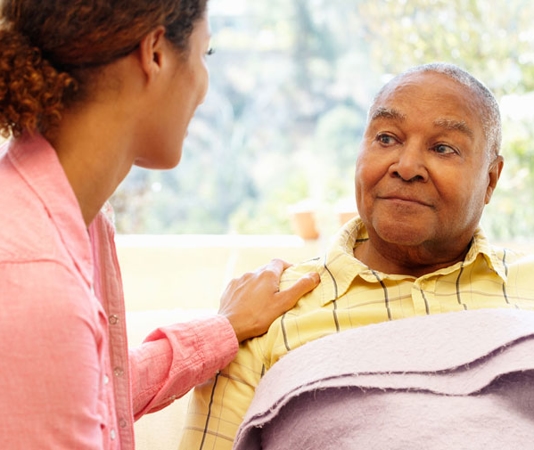Being a caregiver for a loved one can be rewarding and fulfilling, even renewing relationships later in life. However, depending on the illness that someone is living with, caregiving can also be physically and emotionally draining and lead to health issues for a well-meaning caregiver.
Look at The Numbers
In a recent report from Blue Cross Blue Shield, 57% of caregivers overall were found to be “experiencing clinically significant levels of stress, anxiety or depression.” An AARP 2015 survey discovered that “the toll of caregiving on health worsens over time.”
The impacts are different for various generations, with the BCBS report noting that millennials (people born between 1981-1996) experience more pronounced health impacts from caregiving than Generation X (people born between 1946-1980) or Baby Boomers (born between 1946 to 1964). During the peak of the COVID-19 pandemic in 2020, the BCBS survey found that 1 in 4 caregivers were “feeling more stress try to balance work and family.”
The Family Caregiver Alliance provides a variety of statistics on caregiving pulled from many sources. They note several interesting facts, including:
- That caregiving spouses have poorer health than other types of family caregivers
- That older caregivers—those over age 65—rate a physical strain of caregiving as “high”
- That caregivers for someone who is living with Alzheimer’s disease or dementia also rate a physical strain of caregiving as “high”
- That 11% of caregivers report that being a caregiver caused their physical health to deteriorate
- Caregivers who provide care for persons with dementia risk comprising their immune systems for up to 3 years after their caregiving experience ends, thus increasing their chances of developing a chronic illness themselves.
- Negative effects of caregiving are greatest for persons aged 18-29
- 40% to 70% of family caregivers have clinically significant symptoms of depression.
But Why?
Family members often jump into caregiving with no experience or training. Caregiving for a loved one can start out small, doing a few favors or helping out here and there. Then, as a progressive illness such as dementia worsens and the needs for their assistance increase, the stress can also increase.
In some instances, a loved one has time to be a companion to an elder who just needs a little company and help driving to the grocery store. However, some conditions require physical help such as lifting someone in and out of bed or the tub and this can cause injuries to the caregiver. When someone has a progressive illness that leads to a deterioration in their abilities to take care of their own daily activities, it can lead to a family member taking on more and more personal care for which they are unprepared, as well as the emotional stress of watching their parent or spouse changing.
Individual customized care with a person-directed approach by a trained caregiver can augment a family caregiver’s efforts and potentially reduce stress and the chance of illness. For some people in need of assistance, it takes a care team so avoid burnout and injury.
Being aware of the risks of caring for a family member is important so that caregivers can seek out the support they need to maintain their own wellness. Support groups (in-person or virtual), training, and other long-term care options can be considered to decrease stress on a family caregiver.




.1803151925550.jpg)
